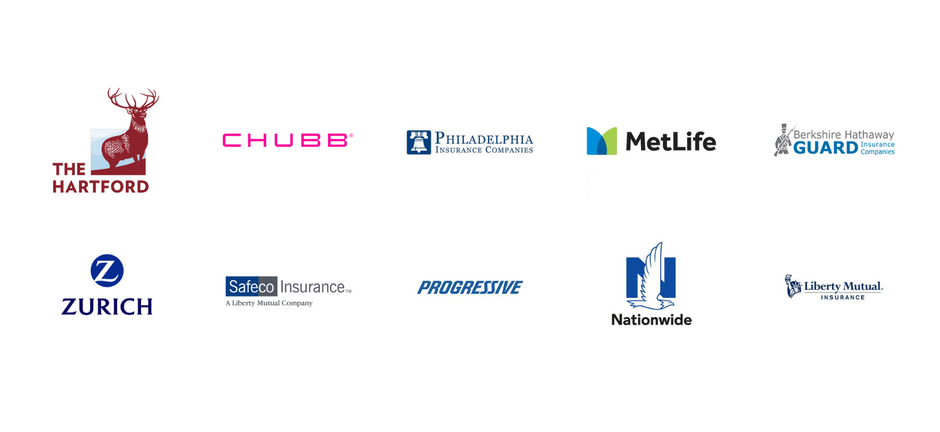By Amelia Manzoor
•
June 13, 2025
Find the Right Workers Compensation Insurance Carrier for Your Liquor Store Today Owning and operating a liquor store is a complex and dynamic business. From managing inventory and navigating legal regulations to ensuring customer satisfaction and maintaining security, liquor store owners have a long list of responsibilities. One essential yet often overlooked element is securing proper insurance coverage, particularly workers compensation insurance. This type of coverage is not just a legal obligation in many states; it's also a critical part of protecting your business, your employees, and your financial future. Finding the right workers compensation insurance carrier for your liquor store is not something to leave to chance. Understanding Workers Compensation Insurance Workers compensation insurance is a form of business insurance that provides medical benefits and wage replacement to employees who are injured or become ill due to their job. In exchange, employees typically forfeit the right to sue their employer for negligence. This mutual agreement ensures that workers are taken care of without prolonged legal battles, and employers are shielded from potentially devastating lawsuits. For liquor store owners, this type of insurance is particularly important. Your employees face a range of risks daily. Whether they are lifting heavy boxes of inventory, managing late-night customer interactions, or handling cash registers under stressful conditions, these tasks carry inherent dangers. A slip-and-fall accident, repetitive stress injury, or even an altercation with an unruly customer can lead to serious injury. Without the right workers compensation insurance, a single incident can lead to significant financial strain. The Importance of Specialized Coverage for Liquor Stores Not all insurance policies or carriers are created equal. A liquor store operates under a unique set of conditions that can impact the level and type of coverage required. The presence of alcohol adds additional risk factors, both in terms of customer behavior and legal liabilities. Moreover, liquor stores often have extended hours, operate in high-traffic areas, and may be more susceptible to theft or robbery. These elements make it crucial to partner with an insurance carrier that understands the specific needs of a liquor store. Choosing a general business insurance provider may not offer the nuanced protection your business requires. A specialized workers compensation insurance carrier will understand the risks specific to your industry and tailor their offerings accordingly. This tailored approach can help ensure that your employees are properly protected and that your business isn’t left exposed. Assessing Your Liquor Store's Risk Profile Before selecting a workers compensation insurance carrier, it's important to evaluate the specific risks associated with your liquor store. Consider the size of your store, the number of employees, operating hours, location, and the nature of the tasks your employees perform. All of these factors will influence your insurance needs. For instance, a small neighborhood liquor store with limited staff and regular daytime hours may face fewer risks than a larger establishment in a high-crime area that stays open late into the night. Similarly, stores that offer delivery services or operate in multiple locations will have different insurance requirements. The more accurately you can define your risk profile, the better suited your chosen insurance carrier will be in meeting those needs. The Financial Impact of Not Having Proper Coverage One of the most compelling reasons to secure adequate workers compensation insurance is the potential financial impact of being underinsured or uninsured. If an employee suffers an injury and your policy doesn’t provide adequate coverage, your business may be responsible for covering medical expenses, lost wages, legal fees, and potential fines. These costs can quickly spiral out of control and threaten the viability of your business. Additionally, failure to maintain workers compensation insurance can result in legal penalties. In many states, it's a legal requirement for businesses with employees to carry this form of insurance. Fines, business closures, and even criminal charges can result from non-compliance. The cost of a comprehensive workers compensation policy is minimal compared to the potential financial and legal ramifications of going without it. How to Choose the Right Insurance Carrier Selecting the right insurance carrier for your liquor store involves more than just comparing premiums. You need to assess the carrier's industry experience, financial stability, customer service, and claims process. A carrier with a deep understanding of the retail liquor industry will be better equipped to provide coverage that aligns with your specific risks. Financial stability is another crucial factor. A financially secure insurance company will have the resources to pay out claims promptly and fairly. Look for carriers with strong ratings from independent rating agencies and a proven track record of reliability. Customer service is equally important. Your insurance carrier should be accessible, responsive, and willing to work with you to address your concerns. Whether it's answering questions about your policy, assisting with risk management strategies, or guiding you through the claims process, a high level of service can make a big difference. The claims process itself should be straightforward and transparent. Injuries are stressful enough without the added burden of navigating a complex or unresponsive claims process. Choose a carrier that offers efficient, supportive, and transparent claims handling to ensure your employees receive the care they need promptly. What to Look for in a Workers Compensation Policy When evaluating workers compensation insurance policies, pay close attention to the coverage details. Make sure the policy covers a wide range of injuries and illnesses, including those that may develop over time. Check whether the policy includes coverage for medical expenses, wage replacement, rehabilitation costs, and death benefits. You should also look for policies that offer support services such as nurse case management, return-to-work programs, and access to a network of medical providers. These features can significantly reduce the cost and duration of claims while improving outcomes for injured employees. Policy limits and deductibles are another important consideration. While lower premiums may be appealing, they often come with higher deductibles or limited coverage. Make sure you understand the trade-offs and choose a policy that offers comprehensive protection without compromising your financial stability. Customizing Your Coverage Every liquor store is different, and your insurance coverage should reflect that. Work with your carrier to customize your policy based on your unique needs. This may include adding endorsements or riders for specific risks, adjusting coverage limits, or incorporating additional services. Custom coverage options might include protection for employees who make deliveries, increased limits for high-risk locations, or specialized support for handling claims related to workplace violence. A flexible insurance carrier will be willing to work with you to build a policy that fits your specific circumstances. The Role of Risk Management in Workers Compensation A proactive approach to risk management can help reduce the frequency and severity of workplace injuries, thereby lowering your insurance premiums over time. Your insurance carrier can be a valuable partner in this effort. Many carriers offer risk assessment services, safety training programs, and other resources to help you create a safer work environment. By identifying potential hazards and implementing preventative measures, you can protect your employees while also demonstrating your commitment to safety. This can have a positive impact on your insurance rates and make your liquor store a more attractive place to work. Reviewing and Updating Your Policy Regularly Your insurance needs can change over time. Whether you're expanding your operations, hiring more staff, or introducing new services, it's important to review your workers compensation policy regularly. A good insurance carrier will proactively help you assess your coverage needs and make necessary adjustments. An annual review is a good starting point, but you should also update your policy any time there is a significant change in your business operations. Keeping your insurance carrier informed about changes can help ensure that your coverage remains adequate and that there are no gaps in protection. The Long-Term Benefits of Partnering with the Right Carrier Finding the right workers compensation insurance carrier for your liquor store is an investment in the future of your business. The right carrier can provide more than just financial protection; they can also offer valuable support and guidance that helps your business thrive. From improving workplace safety and managing claims efficiently to adapting coverage as your business evolves, a strong insurance partner is an essential asset. Over time, a good relationship with your insurance carrier can also lead to better rates and enhanced services. Carriers that understand your business and trust your commitment to safety are more likely to reward you with favorable terms. This can give you a competitive edge and contribute to the long-term success of your liquor store.





















